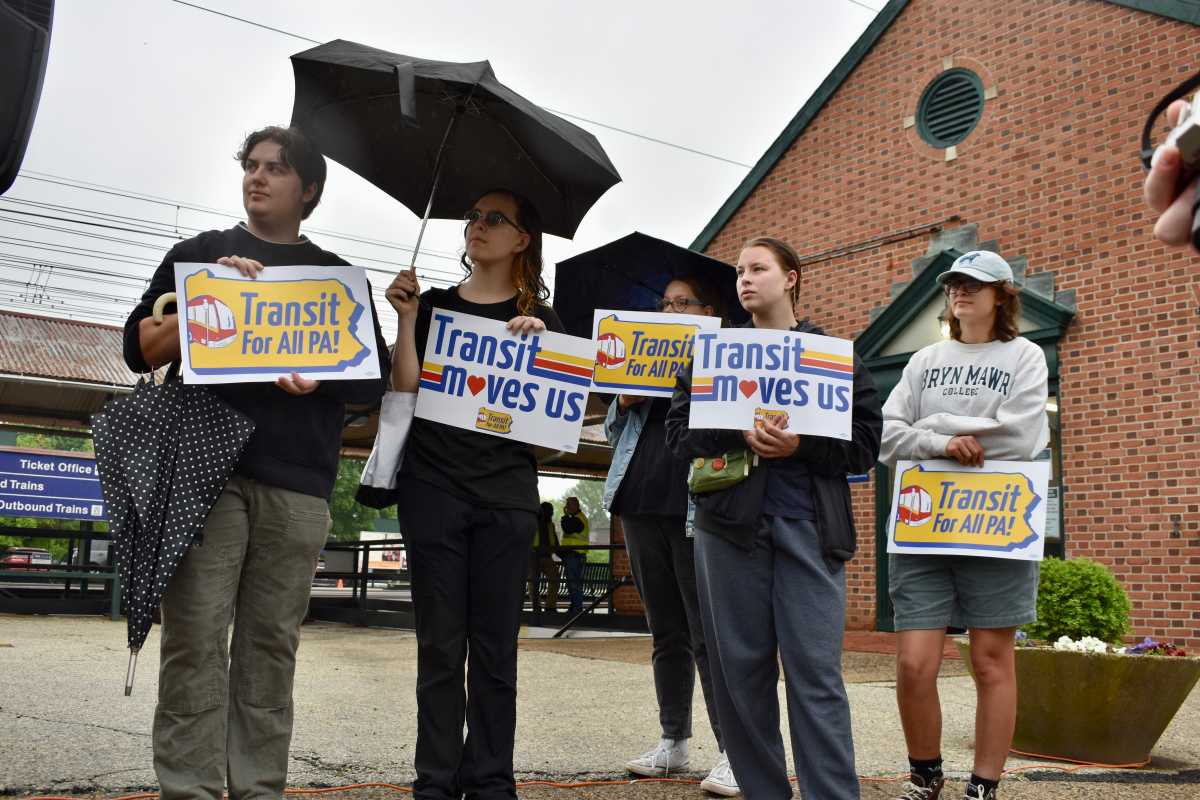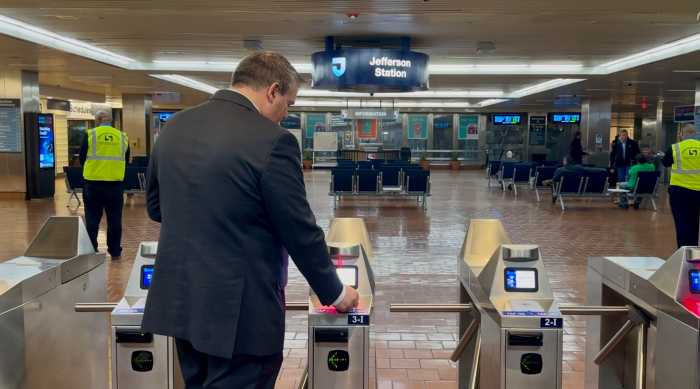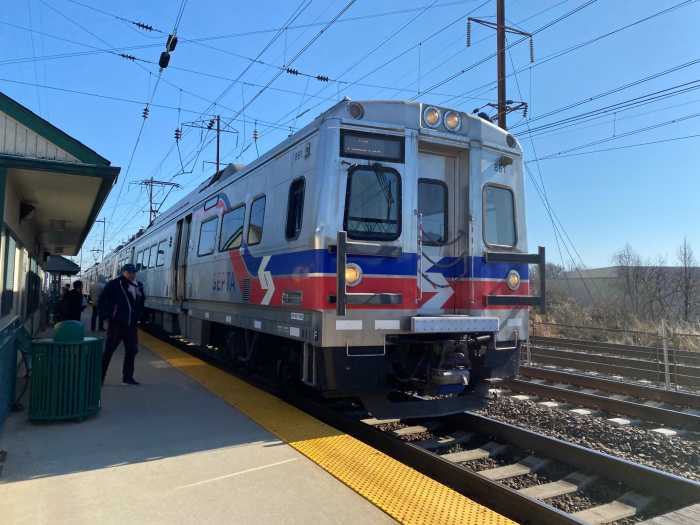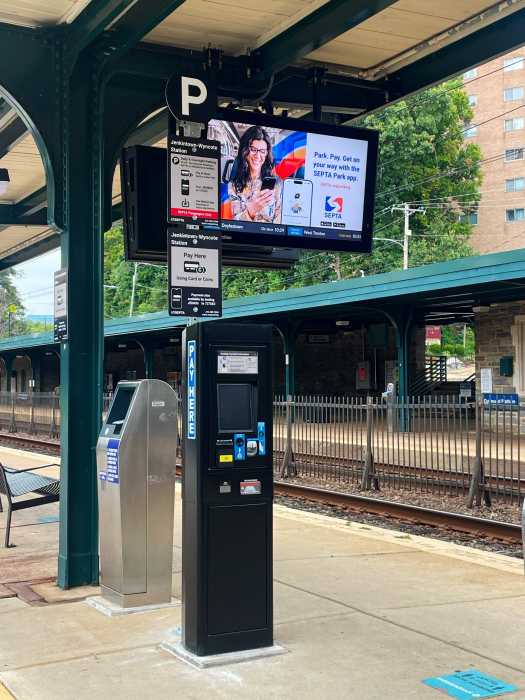SEPTA’s doomsday budget would have a sweeping impact on the Main Line, stranding young people from the area’s many colleges, cutting off residents from opportunities and increasing car traffic, Montgomery County leaders warned Tuesday.
County elected officials, university administrators and students, and transit advocates gathered at Bryn Mawr Station – slated for closure along with the entire Paoli-Thorndale Line – to call on Harrisburg lawmakers to provide additional funding to avert the proposed cuts.
“Public transit is like education. It’s an equalizer, a platform that allows all of us the opportunity to be better and realize our potential,” Montgomery County Commissioner Jamila H. Winder said. “So SEPTA’s funding crisis isn’t a transit issue. This is a justice issue. This is an education issue. This is an economic issue.”
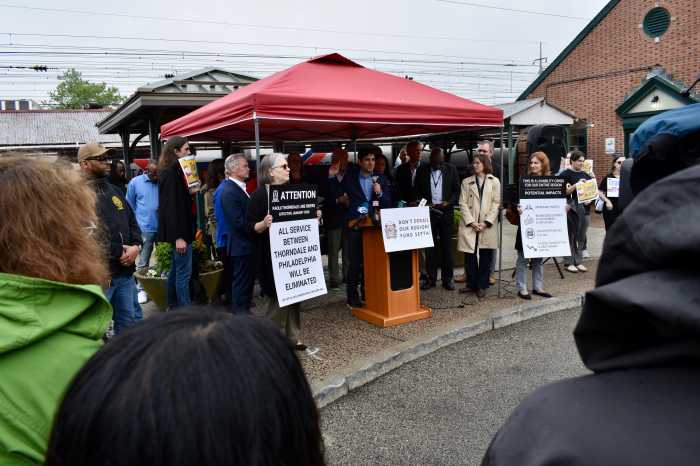
The news conference is part of a wave of pro-transit activism that has stretched from City Hall to the suburbs since SEPTA leaders last month unveiled a plan to implement a 45% service cut and 21.5% fare increase to address the authority’s $213 million budget deficit.
Barring an influx of state dollars, SEPTA intends to axe 32 bus routes in August and reduce service on the rest of its system. The base fare would be raised to $2.90, from $2.50, in September, and five Regional Rail lines, 18 more buses and the Broad Ridge-Spur would be eliminated at the start of 2026.
SEPTA selected the Regional Rail lines because each uses Amtrak rails, which the authority pays about $65 million a year to lease, officials said.
More than 2.8 million Paoli-Thorndale trips were logged last year, making it the most-used Regional Rail service. It runs along the Pennsylvania Railroad’s old Main Line, a name that was extended to the affluent communities on the route.
“For decades, Philadelphia has been home to activists and organizations dedicated to the hard and difficult work of making sure that the city moves forward into a more equitable future,” Bryn Mawr College senior Olivia Loudon said. “So I’m talking to my fellow Main Liners when I say: It is time for you to get involved.”
“This is not an issue to be solved by just putting out yard signs,” she continued. “It is something that requires calls, emails, letters. It requires us to be so loud that they can hear us all the way in Harrisburg.”
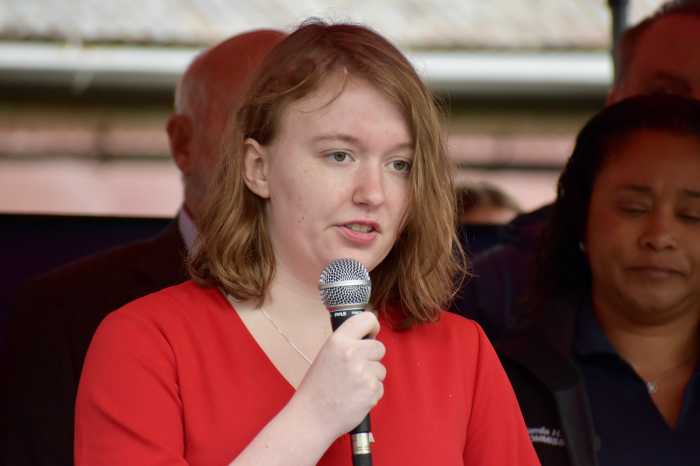
Bryn Mawr was an early adopter of a SEPTA program that allows higher education institutions to purchase transit passes for their students. A thousand students, or 57% of the school’s student body, use the pass each month, college president Wendy Cadge said.
“That is in addition to the dozens of faculty and staff, and me included, who use SEPTA to commute here from all over the Philadelphia region,” she added.
Representatives from Haverford College, St. Joseph’s University and Montgomery County Community College also spoke at the news conference about the importance of public transit for their students and employees.
“For many Montgomery County Community College students, SEPTA is more than just a transit system. It’s a lifeline,” MCCC President Vicki Bastecki-Perez said. “It connects them to their classes, their jobs, child care, internships and essential services, and, ultimately, to the better life they are working so hard to build.”
Two of the three bus routes that serve the community college’s campuses in Blue Bell and Pottstown would experience significant service reductions under the budget proposal, according to Bastecki-Perez.

“Our residents are deeply concerned about the cuts, because we all rely on SEPTA for many different purposes,” Lower Merion Commissioner Gilda L. Kramer remarked.
All three Montgomery County Commissioners appeared, with the sole Republican, Tom DiBello, referring to SEPTA funding as “a bipartisan issue.”
However, in Harrisburg, GOP leaders, particularly in the state Senate, have balked at the hefty price tag for transit, suggesting the cost of running SEPTA should not fall on taxpayers across Pennsylvania.
Gov. Josh Shapiro’s spending plan would allocate an additional $168 million to SEPTA by raising the percentage of state sales tax revenue that goes to transit agencies. Similar proposals have repeatedly passed the Democratic-controlled state House.
In recent weeks, a legislative proposal championed by Democratic Philadelphia Sen. Nikil Saval would raise funding through an increase in the fees for ridesharing applications, vehicle rentals and car leasing. Meanwhile, House Republican Leader Jesse Topper, of southwestern Pennsylvania, has said he wants to privatize SEPTA’s bus operations.
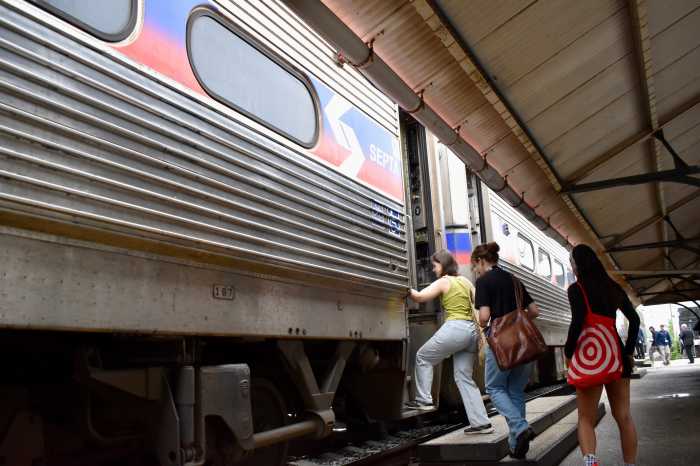
Pittsburgh Regional Transit has also proposed significant cuts. PRT, SEPTA and agencies across the country have faced fiscal holes in the aftermath of the coronavirus pandemic, due to lagging ridership, the expiration of federal relief dollars and inflation.
Montgomery County Commissioner Neil K. Makhija, the governor body’s chair, said weekly events will be held throughout the county – from King of Prussia to Jenkintown – to raise awareness and advocate for a funding solution.
“We’re going to be on the road until the budget is passed,” he said Tuesday.



